Halal Baby Formula Guide
45 hours of research 5 minute read

As parents, we strive to make the best choices for our babies, ensuring their health and well-being. For Muslim parents, the significance of halal baby formula goes beyond mere nutrition. It is a reflection of their religious beliefs and a way to align their parenting choices with their faith. This is where halal baby formula comes into play. In this ultimate guide, we will explore the importance of halal baby formula and empower you to make informed choices for your little one.
What is Halal
Before delving into the specifics of halal baby formula, let's establish a clear definition of halal itself. Halal, which means "permissible" or "lawful" in Arabic, refers to anything that is permissible according to Islamic principles. It encompasses not only food and beverages but also various aspects of life, including personal conduct and the products we use. In the context of baby formula, halal signifies that it meets the dietary requirements set forth by Islamic principles.
In contrast to halal, there is also the concept of haram, which refers to anything that is forbidden or prohibited in Islamic teachings. Haram items are those that are explicitly deemed unlawful and should be avoided by adherents of Islam. The distinction between halal and haram is crucial for Muslim individuals and communities who strive to align their lifestyles with Islamic values and guidelines.
Halal baby formula matters for Muslim parents
Muslim parents prioritize halal baby formula for a variety of reasons, rooted in both religious and cultural considerations. Firstly, Islam places great importance on dietary practices, and consuming halal food is seen as a way of fulfilling religious obligations. By choosing halal baby formula, Muslim parents ensure that their child's nutritional intake aligns with their faith.
Additionally, halal dietary practices go hand in hand with the broader Islamic lifestyle. It promotes mindfulness about the source and quality of ingredients, emphasizing purity and wholesomeness. Choosing halal baby formula becomes a way to instill these values in our children from a young age, fostering a sense of identity and connection to their religious heritage.
Choosing a Halal baby formula

Faith and Lifestyle Alignment: By opting for halal baby formula, Muslim parents can align their parenting choices with their faith and lifestyle. When parents provide their babies with halal formula, they find solace in knowing that they are nourishing their little ones in a manner that complies with the teachings of Islam. It provides them with peace of mind and the assurance that their baby's nutritional needs are being met in a halal manner. This alignment between faith and parenting choices strengthens the bond between parents and their children, as it reflects a commitment to raising them in accordance with Islamic principles.
Safety and Quality: One of the notable advantages of choosing halal baby formula is the rigorous standards and quality control measures that halal manufacturers must adhere to. Halal certification organizations often have strict guidelines that manufacturers must follow in order to ensure the integrity of their products. This includes thorough inspections, audits, and continuous monitoring of the entire production process. The stringent requirements and inspections associated with halal certification help to minimize the risk of contamination and ensure that the formula is free from any prohibited substances.
Cultural Significance: Food plays a central role in many cultures, and this is no different in Muslim communities. By selecting halal baby formula, parents are actively preserving their cultural heritage and passing it down to the next generation. It serves as a tangible connection to their roots and traditions, fostering a sense of belonging and pride.
Moreover, the use of halal baby formula encourages a sense of community among Muslim parents. It creates a shared experience and common ground for families who strive to incorporate halal practices into their daily lives. This shared commitment to halal choices can lead to a greater sense of unity and support among Muslim parents as they navigate the joys and challenges of parenting.
Key principles of halal dietary guidelines
Prohibition of Haram: The primary principle of halal dietary guidelines is to avoid consuming haram (forbidden) items. This includes pork and its derivatives, alcohol, blood, and any other substances explicitly prohibited in Islamic teachings.
Slaughtering Method: Halal guidelines emphasize the importance of humane animal slaughter. Animals must be slaughtered by a Muslim who is of sound mind and pronounces the name of Allah (God) during the process. The animal should be healthy and the slaughter should be swift, causing minimal pain and distress.
Ingredient Considerations: Halal guidelines require careful scrutiny of ingredients in processed foods. Muslims are encouraged to avoid products containing haram ingredients or those derived from prohibited sources. This includes reading labels and ensuring the absence of alcohol, pork gelatin, or other non-halal substances.
Understanding Halal certification

A. What is Halal certification?
Halal certification is a process that ensures a product, in this case, baby formula, meets the strict requirements of halal standards. It involves a comprehensive assessment of the entire production chain, including the sourcing of ingredients, manufacturing processes, and packaging. Halal certification organizations conduct inspections, audits, and ongoing monitoring to ensure compliance with halal guidelines.
B. Recognized Halal certification authorities
There are several recognized halal certification authorities worldwide. Some prominent ones include the Islamic Food and Nutrition Council of America (IFANCA), Halal Food Council of Europe (HFCE), and Halal Certification Services (HCS). These certification bodies have established credibility and expertise in verifying and certifying the halal status of various products, including baby formula.
C. Ensuring Halal certification for baby formula
When selecting halal baby formula, it is essential to look for recognized halal certification logos or labels on the product packaging. These logos serve as an assurance that the formula has been produced, processed, and manufactured in compliance with Islamic dietary guidelines. It is also advisable to consult the websites or contact the certification authorities directly to verify the authenticity and current status of the certification when in doubt.
Halal baby formula selection
A. Common ingredients to look out for
When selecting halal baby formulas, it is important to be aware of common ingredients that may be non-halal or haram (forbidden) according to Islamic dietary guidelines. Here are some ingredients to look out for:
- Pork and Pork Derivatives: Ingredients derived from pork, such as pork gelatin or pork fat, are considered haram and should be avoided.
- Alcohol: Any form of alcohol, including ethyl alcohol or alcohol-based flavorings, is considered haram and should not be present in halal baby formulas unless they are halal-certified.
- Animal-Derived Ingredients: Ingredients like animal fats, animal enzymes, or extracts derived from non-halal animals should be avoided. Examples include lard, tallow, or non-halal rennet.
- Haram Gelatin: Gelatin derived from non-halal sources, such as pig or other haram animal sources, is not permissible in halal products. Check the ingredient list for gelatin and ensure it is from halal-certified sources or plant-based alternatives.
- Haram Additives and E-Numbers: Some food additives and E-numbers may be derived from non-halal sources or have haram components.
- Haram Emulsifiers and Stabilizers: Certain emulsifiers and stabilizers, such as those derived from animal sources, may be non-halal. Examples include emulsifiers like E471 (mono- and diglycerides of fatty acids) or stabilizers like E120 (cochineal or carmine).
- Haram Flavorings: Flavorings derived from non-halal sources, such as alcoholic extracts or extracts from non-halal animals, should be avoided. Look for natural flavorings or halal-certified flavorings instead.
- Cross-Contamination: Although not an ingredient itself, cross-contamination can occur during manufacturing processes. Be mindful of potential cross-contamination with non-halal ingredients or equipment used for non-halal products. Look for formulas that have robust quality control measures to prevent cross-contamination.
B. Halal alternatives
If you are unable to find halal-certified baby formula or have concerns about the halal status of certain ingredients, consider exploring halal alternatives. Consult with reputable Islamic scholars or organizations to identify suitable substitutes or homemade options that meet halal criteria.
- Homemade options: Consider preparing homemade baby formula using halal-certified ingredients or recipes recommended by reputable sources.
- Seeking halal-certified brands: Look for brands that specialize in halal baby formula and have obtained reliable halal certifications.
- Organic, Plant-Based, and GMO-free choices: Organic, vegan, and Non-GMO baby formulas tend to have a higher likelihood of being halal-friendly. They often avoid animal-derived ingredients and may have stricter ingredient sourcing standards. However, it is important to ensure that these alternatives meet the necessary halal standards and do not compromise the nutritional needs of your baby.
Halal baby formula brands and products

Kendamil Halal formula
Kendamil prides itself on producing halal-certified organic baby formulas. Their formulas are crafted using sustainably sourced organic milk and are free from palm oil and genetically modified organisms (GMOs). With a focus on high-quality ingredients, Kendamil provides essential nutrients for your baby's growth and development, ensuring a halal-compliant option that meets rigorous standards.
Aptamil Halal formula
Aptamil, a well-established brand trusted by parents globally, also provides halal-certified formulas. With a strong emphasis on research and innovation, Aptamil aims to replicate the composition of breast milk. Their halal-certified formulas are designed to support infants' nutritional needs at various stages of development, offering peace of mind for families looking for halal-compliant options.
Kabrita Halal formula
Kabrita, a renowned European brand, offers halal-certified formulas based on goat milk. Goat milk is often preferred by parents seeking an alternative to cow milk for babies with sensitivities or lactose intolerance. Kabrita's formulas are designed to be gentle on the stomach and provide a balanced nutritional profile. With their halal certification, Kabrita ensures a suitable choice for families adhering to Islamic dietary guidelines.
Nannycare Halal formula
Nannycare, another halal-certified brand, specializes in goat milk-based formulas. Produced in the United Kingdom, Nannycare formulas are known for their natural ingredients and gentle digestion properties. By offering halal-certified options, Nannycare caters to families seeking a halal-compliant alternative that promotes optimal growth and well-being for their little ones.
Halal in context with other European baby formula brands
HiPP
HiPP, a popular European brand, is known for its high-quality organic baby formulas. While they prioritize the highest quality standards, including rigorous testing and quality control, they do not advertise themselves as halal-certified.
According to HIPP, they whey used in all their formulas is obtained from whole milk using rennin, which sometimes comes from animals due to the unavailability of enough organic whey produced with microbial rennet, and the lactose and galacto-oligosaccharides in their formula are derived from lactose obtained through the separation process involving animal rennet.There are varying opinions regarding the permissibility of consuming Rennet in Islam, but for the most part, it is considered acceptable to consume.
The HiPP Organic formulas do not possess Halal certification, but no ingredients or elements in their formula milks are derived from pork, lamb, beef, or chicken.
Holle
Holle, another highly regarded European brand, focuses on organic baby formulas and baby food products. Holle has confirmed that their infant and toddler formulas are not halal-certified, however, they are proud of their commitment to using natural and biodynamic ingredients to support your baby's healthy development.
Lebenswert
Lebenswert, produced by Holle, is known for its organic formulas that follow strict European organic farming standards. Lebenswert emphasizes using high-quality ingredients and gentle processing methods to provide wholesome options for your little one although their baby formula products were not specifically certified as halal.
Tips for a Halal-friendly environment
Creating a halal-friendly environment for your baby involves more than just selecting the right formula. Here are some tips to ensure a halal-friendly environment:
A. Storage and Handling Guidelines
Store and handle baby formula in a clean and separate area away from non-halal food items. Use dedicated utensils and bottles that are exclusively used for halal products.
B. Cross-Contamination Risks
Be mindful of cross-contamination risks when preparing and serving baby formula. Clean and sanitize all preparation surfaces and equipment thoroughly before use. Avoid using utensils or containers that have come into contact with non-halal substances.
C. Halal Preparation Techniques
Learn and implement proper halal preparation techniques. This includes using clean and halal water for mixing formula, following the recommended measurements and instructions, and ensuring that all ingredients used in the preparation are halal.
Frequently Asked Questions (FAQs)

How can I identify if a baby formula is halal?
To determine if a baby formula is Halal, look for certification from a recognized Halal certification authority. These authorities evaluate and verify the production process, ingredients, and manufacturing facilities to ensure compliance with Halal standards. Look for their logo or label on the packaging.
How do baby formula manufacturers get halal approval?
To acquire halal certification, the process involves meeting the requirements outlined by Islamic dietary guidelines. The certification necessitates adherence to two primary conditions:
- Exclusive use of halal ingredients in the production of our products.
- The factory must undergo an audit and obtain approval from an Islamic Halal authorization body.
Are Halal baby formulas organic?
Some Halal baby formulas may also be organic, but not all organic formulas are necessarily Halal. Organic certification refers to the farming practices used to grow the ingredients, while Halal certification focuses on compliance with Islamic dietary guidelines. Look for products with dual certifications if you prefer both Halal and organic options.
Can I mix halal and non-halal baby formulas?
It is recommended to avoid mixing halal and non-halal baby formulas to maintain the halal integrity of your child's diet. Mixing non-halal and halal products can lead to cross-contamination and compromise adherence to Islamic dietary guidelines. It is advisable to consult with a religious authority or scholar for further guidance on specific situations or circumstances.
Can I assume a formula is halal if it doesn't have any haram ingredients listed?
While the absence of haram ingredients is a positive indication, it is still recommended to seek halal certification or confirmation from the manufacturer. Some non-halal ingredients may not be explicitly listed on the packaging, making it necessary to rely on reliable halal certification to ensure the formula's compliance with halal standards.
Can I rely on homemade formulas to ensure halal compliance?
While homemade formulas can be an option for some parents, it is important to exercise caution and ensure that the ingredients used are halal.
Common challenges and overcoming them
In today's diverse world, it is important to accommodate the dietary and religious needs of various communities. Muslim parents, in particular, often face unique challenges when it comes to providing halal baby formula for their infants. But with the right know-how and resources at hand, these challenges can be conquered.
For Muslim parents, ensuring that their infants consume halal products is of utmost importance. Halal refers to food and products permissible according to Islamic dietary laws. However, finding halal baby formula can be challenging due to various factors. Firstly, the availability of halal baby formula may be limited, especially in non-Muslim majority countries or regions. This can leave Muslim parents feeling frustrated and uncertain about the options available to them. Additionally, the lack of clear labeling or certification for halal products can further complicate the process of finding suitable baby formula.
While the availability of halal baby formula may vary from region to region, there are strategies that Muslim parents can employ to overcome these challenges. One approach is to research and connect with local Islamic organizations or halal certifying agencies. These organizations can provide guidance on which brands or products are considered halal and may have information about suitable options in specific regions. Online communities and forums dedicated to Muslim parenting can also be valuable resources, as parents can share their experiences and recommendations regarding halal baby formula.
In countries where halal baby formula is readily available, Muslim parents should still exercise caution and verify the halal status of the products they choose. Checking for reliable halal certification symbols or labels is essential. Furthermore, it is advisable to stay updated on any changes or updates in the market regarding the halal status of specific brands or formulas.
Another significant concern for Muslim parents is the potential for cross-contamination of halal baby formula with non-halal ingredients during production, handling, or storage. To address this concern, it is crucial to look for companies that prioritize halal integrity and have stringent quality control measures in place. Reputable manufacturers often follow strict guidelines to prevent cross-contamination and maintain the halal status of their products. Researching the manufacturing processes and policies of baby formula brands can help parents make informed decisions.
Halal baby formula

In conclusion, Muslim parents face unique challenges in finding a halal baby formula and creating a halal-friendly environment for their infants. The limited availability of halal-certified options and the risk of cross-contamination pose significant concerns. However, with awareness and proactive measures, these challenges can be overcome.
By conducting thorough research, reading product labels, and seeking guidance from trusted Islamic scholars or halal certification organizations, Muslim parents can identify suitable halal baby formula options. It is important to be aware of regional regulations and certification bodies that govern halal products, as they can provide valuable guidance and reassurance.
Furthermore, addressing concerns about cross-contamination and halal integrity requires selecting brands that have obtained reliable halal certifications. Contacting manufacturers directly to inquire about their production practices can provide additional assurance.
To create a halal-friendly environment, Muslim parents should follow storage and handling guidelines. Designating a separate area for halal baby formula, practicing proper hygiene during preparation, and ensuring clean feeding utensils can minimize the risk of cross-contamination.
When feeding their infants outside the home, communication about dietary requirements and ensuring the cleanliness of utensils and bottles used is crucial. Additionally, familiarizing themselves with halal preparation techniques, such as using dedicated utensils and avoiding alcohol-based substances, will help maintain the integrity of their baby's food.
By actively addressing these challenges and implementing halal-conscious practices, Muslim parents can provide a nurturing and halal-friendly environment for their infants. It is through their dedication and commitment that they can raise their children following their religious beliefs and ensure their holistic well-being.
Remember, it is always important to consult with religious scholars or experts for specific guidelines and recommendations regarding halal practices. With proper knowledge and understanding, Muslim parents can navigate these challenges and create an environment that aligns with their faith, ensuring the best start for their little ones.
Most popular Halal formulas
References
- https://www.aptaclub.co.uk/products/is-aptamil-halal.html/
- https://kendamil.com/pages/faqs/
- https://www.nannycare.co.uk/pages/faqs/
- https://thehalallife.co.uk/products/aptamil-milk/
- https://ap.fftc.org.tw/article/2731/
- https://www.isahalal.com/news-events/blog/top-5-challenges-faced-halal-industry-and-how-overcome-them/
- https://thebabyswag.com/bobbie-vs-kabrita/
- https://mommyhood101.com/best-goat-milk-baby-formulas/


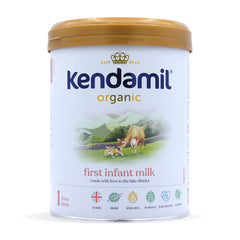
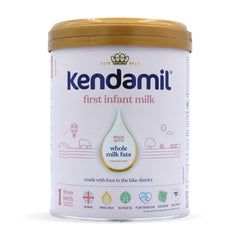
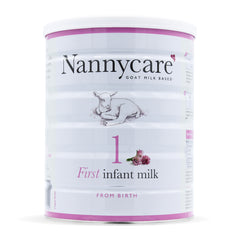
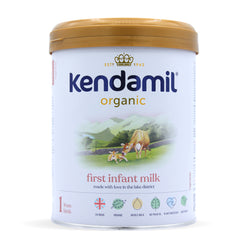
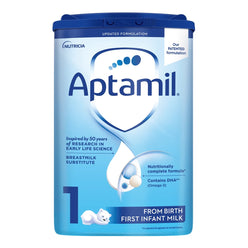
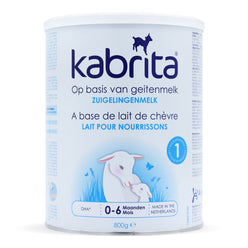
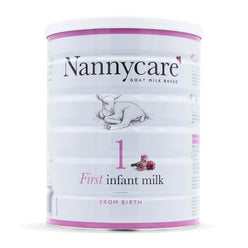






Bernard -
Finding Halal baby formula has been tough in my area, so I’m glad this guide pointed out some options I hadn’t come across before. It’s nice to know there are a few more choices available now.